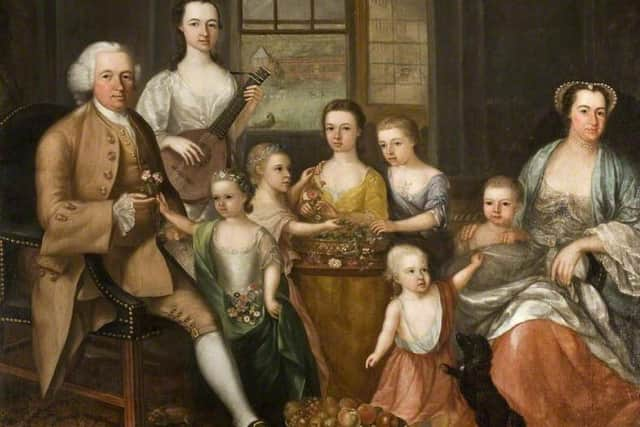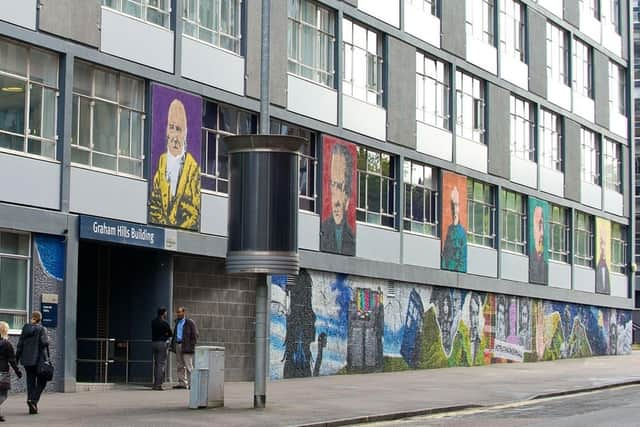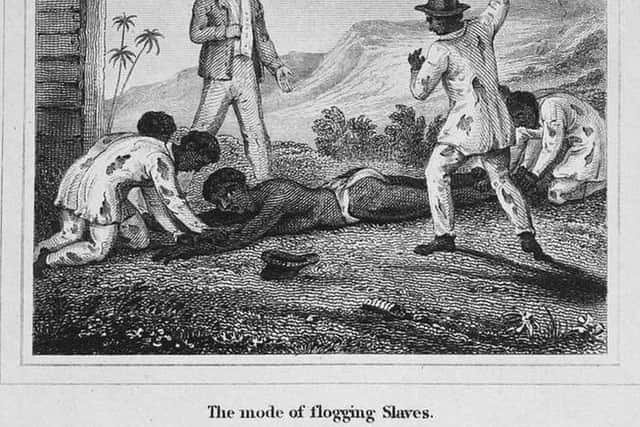Scots university’s 'shocking’ discovery over links with slavery
A Scots university has acknowledged the “uncomfortable truth” about the links between its foundation, the profits of slavery and the key role four enslavers played in the origins of the institution.
An investigation at The University of Strathclyde found that four separate presidents of the Anderson’s Institution, the forerunner to the university, owned enslaved people in the West Indies during their tenure.
Advertisement
Hide AdAdvertisement
Hide AdThey included John Hamilton, a merchant dealing in sugar and rum who owned several plantations in Jamaica and served as Lord Provost of Glasgow.


Hamilton was a member of Glasgow West India Association, a group that lobbied in favour of slavery before the Abolition of Slavery Act 1833, as were a disproportionate number of city merchants who served as trustees during a period when the debate over abolition of slavery in British colonies was at its height.
A further eight presidents out of 20 who served between 1796 and 1877 had positions, shares or associations with companies that had a clear connection with slavery. Three presidents had a very strong incidental relationship.
The founding of the new university came at a time when the ‘wealthy elite” merchants of Glasgow had growing aspirations as civic leaders with their “financial acumen” then likely considered a useful asset to the institution as it tried to get off the ground.
Professor Sir Jim McDonald, vice principal and chancellor of the university, who instigated the report said it was “perhaps inevitable” that a university so closely entwined with Glasgow had “connections to the abomination that is slavery".


"It is nonetheless shocking and provides new context regarding the University’s foundational story,” he added.
Professor Richard Finlay, the head of the School of Humanities at the University of Strathclyde, said his report, like others carried out by many Higher Education and long-standing institutions, was “part of a wider, and many would say, overdue, introspective truth-seeking examination of a painful historical legacy.”
The report said: “Anderson’s Institute was founded in a city that had and was still sucking in the profits from slavery. Indeed, it came into existence at a time when trade with the slaving economies was at its most lucrative.”
Advertisement
Hide AdAdvertisement
Hide AdThe report also found that the early institution was gifted monies likely derived from the profits of slavery but, due to the lack of comprehensive historical records, an exact sum could not be reached. However, donations from slavery-derived income are believed to have constituted a small, albeit important, part of the nascent institution’s finances.


The Anderson Institution was founded by a bequest by Professor John Anderson, who wished to create ‘a place of useful learning’ for working men and women in the city following his departure from the University of Glasgow where he latterly served as Chair of Natural Philosophy and spent years in fractious battles as he rallied against the ‘vanity and power of professors’ amid calls for widespread university reforms.
On his death, it emerged Anderson left insufficient funds for this new institution and the 81 Trustees named in his Will and Legacy were left to raise the necessary money to fulfil his wish. Glasgow was by then awash with riches derived from the plantations of the Americas and the West Indies.
By the 1760s, Glasgow had become the main port in the United Kingdom for the trade in tobacco with the city's Tobacco Lords profiting from both the labour of enslaved Africans and the supply of credit and loans for plantation development.
By 1775, some £1.3 million was owed to Scots by the plantation owners and a wide spectrum of Scottish society was involved in investing in the lucrative and profitable use of enslaved labour, the report said.


The contemporary value of this sum works out as £186m when accounting for inflationary changes, £2.3bn when accounting for changes in values to goods and services or £19.8bn as a proportion of GDP.
The report added: "Given the omnipresent nature of the engagement with the slaving economies of the Americas in Glaswegian society in the late eighteenth and early nineteenth centuries, it goes without saying that many of the hundreds of individuals who served as Trustees of the institution will have had some kind of casual acquaintance with or participation in business connected to slavery.”
While there is no evidence that the management of Anderson’s Institution promoted pro-slavery sentiments, neither did it promote anti-slavery petitions, the report found.
Advertisement
Hide AdAdvertisement
Hide AdHowever, it is believed John Anderson did support abolition given his circle of friends, associates and reading material.
The university said it is strengthening its continued commitment to advancing race equality for students and staff and will maintain and expand its investment in work which furthers racial equality and raises awareness of Glasgow’s slavery legacy
Professor Sir McDonald said: “Today the University of Strathclyde prides itself on being a socially progressive institution that champions equality and diversity.
“This important report has revealed that in our early history, our antecedent institution was a beneficiary of money that was derived from business profits involving slavery, and that some of its governors, trustees and donors were enablers, supporters and profiteers of slavery.
“As an institution so closely entwined with the City of Glasgow, it was perhaps inevitable that there would be connections to the abomination that is slavery. It is nonetheless shocking and provides new context regarding the University’s foundational story.
“It is only right that we acknowledge this uncomfortable truth and to recognise and accept that much of our city’s, and our nation’s, history and prosperity has been built through the exploitation of other peoples and this is deeply regrettable.
“We must also recognise the enduring effects of this exploitation and enslavement which continue to be felt in our society to this day. So, while we must not gloss over our past, we should use this knowledge of our own history to inform our actions and tackle injustice today.”
Comments
Want to join the conversation? Please or to comment on this article.